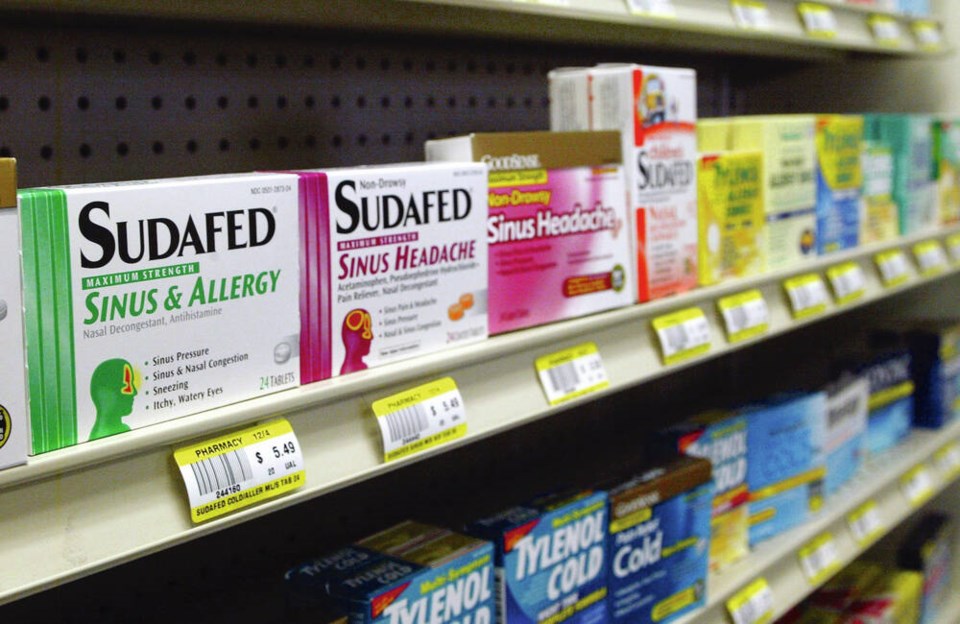WASHINGTON — The leading decongestant used by millions of people looking for relief from a stuffy nose is no better than a dummy pill, according to U.S. government experts who reviewed the latest research on the long-questioned drug ingredient.
Advisers to the Food and Drug Administration voted unanimously on Tuesday against the effectiveness of the key drug found in popular versions of Sudafed, Dayquil and other medications stocked on store shelves. “Modern studies, when well conducted, are not showing any improvement in congestion with phenylephrine,” said Dr. Mark Dykewicz, an allergy specialist at the Saint Louis University School of Medicine.
The FDA assembled its outside advisers to take another look at phenylephrine, which became the main drug in over-the-counter decongestants when medicines with an older ingredient — pseudoephedrine — were moved behind pharmacy counters. A 2006 law had forced the move because pseudoephedrine can be illegally processed into methamphetamine.
Those original versions of Sudafed and other medicines remain available without a prescription, but they’re less popular and account for about one-fifth of the $2.2-billion US market for oral decongestants. Phenylephrine versions — sometimes labelled “PE” on packaging — make up the rest.
If the FDA follows through on the panel’s recommendations, Johnson & Johnson, Bayer and other drugmakers could be required to pull their oral medications containing phenylephrine from store shelves. That would likely force consumers to switch to the behind-the-counter pseudoephedrine products or to phenylephrine-based nasal sprays and drops.
In that scenario, the FDA would have to work with drugstores, pharmacists and other health providers to educate consumers about the remaining options for treating congestion, panellists said Tuesday.
The group also told the FDA that studying phenylephrine at higher doses was not an option because it can push blood pressure to potentially dangerous levels.
“I think there’s a safety issue there,” said Dr. Paul Pisaric of Archwell Health in Oklahoma. “I think this is a done deal as far as I’m concerned. It doesn’t work.”
This week’s two-day meeting was prompted by University of Florida researchers who petitioned the FDA to remove most phenylephrine products based on recent studies showing they failed to outperform placebo pills in patients with cold and allergy congestion. The same researchers also challenged the drug’s effectiveness in 2007, but the FDA allowed the products to remain on the market.
This time, the 16 members of the FDA panel unanimously agreed that current evidence doesn’t show a benefit for the drug.
“I feel this drug in this oral dose should have been removed from the market a long time ago,” said Jennifer Schwartzott, the patient representative on the panel. “Patients require and deserve medications that treat their symptoms safely and effectively and I don’t believe that this medication does that.”
The advisers essentially backed the conclusions of an FDA scientific review published ahead of this week’s meeting, which found numerous flaws in the 1960s and 1970s studies that supported phenylephrine’s original approval. The studies were “extremely small” and used statistical and research techniques no longer accepted by the agency, regulators said.



